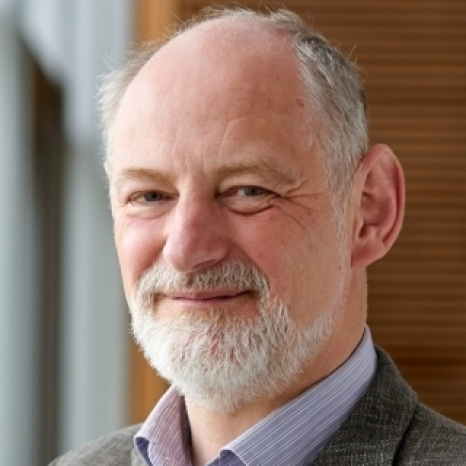Electrical engineering and information technology
At a glance
Academic degree
Master of Engineering (M.Eng.)
Form of study
Consecutive full-time Master's degree
Standard period of study
3 semesters (incl. Master's thesis), 90 ECTS
Place of study
Language of instruction
German
Start of studies
Winter semester (October 1)
Summer semester (March 15)
Admission requirements
Final grade in undergraduate studies at least 2.5 and
selection interview
Semester abroad
Possible as a theoretical or practical semester
Studying with a practice partner
Registration
from 02.05.
– 15.06. (for winter semester)
from 15.11.
until 15.01.
(for summer semester)
Profile of the Master's program
The Master's program in Electrical Engineering and Information Technology offers you the opportunity to work intensively on your own project over three semesters. You will be supported by a professor as a mentor. The cool thing about it: you have the right to propose your "Master's project" and can develop your idea either from the university or from practice. In addition to your project, you will attend appropriate lectures and seminars, not only in Coburg, but also at the cooperating universities in Aschaffenburg and Würzburg-Schweinfurt. You also have the opportunity to choose courses from other Master's degree programs at cooperating universities and thus design your studies individually.
What we value
Research and practice
The Master's degree program in Electrical Engineering and Information Technology combines theory, research and practice in a unique way. Right at the beginning, you plan your three-semester project together with your supervising professor and design your individual study plan. You set milestones that you want to achieve during the course of your studies. You will not only acquire the necessary theoretical knowledge, but also important research methods to tackle practical hallenges. You will have the opportunity to work closely with partners from industry or research and develop valuable project management skills on the job. The program also offers you the chance to exchange ideas with Master's students from partner universities and expand your network.
Studying with in-depth practice (PraxisPLUS)
Studying with in-depth practical experience in the PraxisPLUS model offers you the opportunity to gain more practical experience during your studies – without extending the duration of your studies. The prerequisite is a work contract with a company/institution. You can apply your knowledge from the lecture directly at work. The work in the company is remunerated. This in turn makes it easier to finance your studies.
Study internationally
Coburg University of Applied Sciences offers the opportunity to complete a study or practical semester abroad. To this end, Coburg University of Applied Sciences maintains relationships with foreign partner universities.
Further information is available from the university's Study Abroad service.
Master concept
1st and2nd semester
In the first two semesters, students focus on Project Modules I and II, Project-related Seminars I and II, Technological Modules I and II and Research Methods I and II. In the first semester, they also take an in-depth engineering module and in the second semester an interdisciplinary module.
3rd semester
In the third semester, students write their Master's thesis.
The study and examination regulations form the legal basis of the degree program. The module handbook provides information on the content of the individual modules. Questions about the content of the degree course can be answered by the course advisor Prof. Dr. Michael Rossner.
Master project
The Master's degree course in Electrical Engineering and Information Technology offers the opportunity to spend three semesters working intensively on a research or industrial project. Interested students can apply for projects in the following areas:
Subject areas
- High voltage engineering (Prof. Dr. Michael Rossner)
- Energy system and plant diagnostics (Prof. Dr. Christian Weindl)
- Power Electronics (Prof. Dr. Alexander Stadler)
- Photovoltaics (Prof. Dr. Bernd Hüttl)
- Robotics (Prof. Dr. Kolja Kühnlenz)
- Electrical drive and converter technology (Prof. Dr. Omid Forati Kaschani)
- High Frequency Technology(Prof. Dr. Hans-Martin Tröger)
The following specific projects can currently be worked on as part of the Master's project:
Projects
- Construction of a demonstration plant to verify the ECS concept Project description
- Development of a measurement system for recording spatially distributed operating conditions of a photovoltaic string under free-field conditions Project description
- Sensor-based navigation of autonomous robots
- Camera-based robot control
- Networked controls with variable time delays
- Person tracking using Laser Range Finder
- Visual line of sight control for mobile robots
For information on the projects, please contact Prof. Dr.-Ing. habil. Kolja Kühnlenz directly.
Job & Career
The Master's degree program prepares you intensively for challenging research, specialist and management tasks in industry and research institutions. Many doors will be open to you after graduation: You can join the higher civil service, take on management positions or even take the plunge into self-employment. Coburg University of applied sciences and arts supports you in this and works closely with the start-up advisory services of the Chambers of Industry and Commerce and the Economic Development Agency to make it easier for you to start your own business.
Do your doctorate now!
A good Master's degree also creates the basis for a doctorate, e.g. in cooperation with a partner university or one of our doctoral centers. Numerous graduates have already taken advantage of this opportunity and followed up their Master's thesis with a doctorate.
Application and admission
Admission requirements
- Subject area of the undergraduate degree: Electrical Engineering, General Engineering, Mechanical Engineering, Mechatronics, Information Technology, Technical Physics or related fields
- Diploma or Bachelor's degree with an overall grade of 2.5 or better
- At least 210 ECTS (usually seven semesters) including a practical semester. Applicants with 180 ECTS can catch up on theory or an internship of 20 weeks or have it recognized through proof of relevant professional experience of at least one year.
- Selection interview with presentation on a scientific topic from electrical engineering and information technology (30 minutes)



